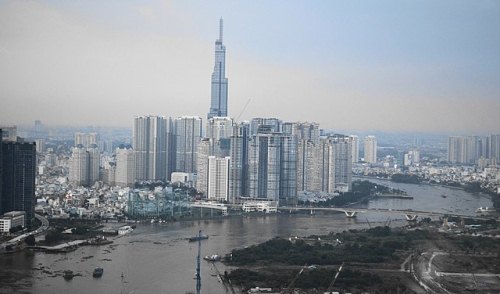- About 88% of European companies focusing on ASEAN expect business growth in the region over the next 12 months
- Nearly half of the respondents plan to expand into the region as a way to diversify their production footprint and reduce dependency on China
- The RCEP ratification is expected to attract more European investments, with 65% of respondents planning to increase investments over the next three to five years
- Pharmaceuticals production, consumption of consumer goods, automotive industry, green and digital solutions, renewable and clean energy, and e-commerce are the six sectors seen to drive future regional growth
In the Association of Southeast Asian Nations (ASEAN), Vietnam, Malaysia and Thailand are the most attractive expansion destinations for European companies that want to diversify supply chains, according to a recent survey conducted by Standard Chartered Bank.
About 88% of European companies focusing on ASEAN expect business growth in the region over the next 12 months, and consider Vietnam, Malaysia and Thailand the markets that present the most expansion opportunities, said the survey report released late last month.
Nearly half of the respondents in the survey said they plan to expand into the ASEAN region as a way to diversify their production footprint.
“European companies trying to diversify their supply chains are increasingly adopting a ‘China Plus One’ strategy to reduce their supply chain dependency on a single market, turning to countries like Vietnam for their geographical proximity or to Malaysia and Thailand for their manufacturing capabilities,” the report said.
Other drivers for European investment expansion into the region include a large and growing ASEAN consumer market, free trade agreements and EU-led initiatives, and a reliable supplier base.
In addition, the ratification of the Regional Comprehensive Economic Partnership (RCEP) is expected to attract more European investments, with 65% of respondents planning to increase investments over the next three to five years.
In terms of target markets within ASEAN, 60% of survey respondents are focusing on expanding in Vietnam to capture sales and production opportunities, followed by Malaysia (53%) and Thailand (48%).
Among those keen to tap Singapore, 77% expect to leverage the city-state as a regional headquarters for their sales and marketing and corporate functions as they look to expand across ASEAN.
The survey identified six sectors that will likely drive future growth in the region and attract more European investments: pharmaceuticals production, consumption of consumer goods, automotive industry, green and digital solutions, renewable and clean energy, and e-commerce.
The optimistic outlook comes even as the companies identified their top three risks in the region, which are geopolitical uncertainty and trade conflicts, the COVID-19 pandemic or other health crises, and the slow revival of the economy and drop in consumer spending.
At the same time, in the next six to 12 months the companies see as their most significant challenges their understanding of regional regulations, payment methods and infrastructure; adapting their business model to industry practices; and building relationships with suppliers and adapting supply chain logistics.
To mitigate these risks, a majority of the survey respondents consider entering new partnerships/joint ventures to increase market presence. To support their growth, these companies are seeking banking partners; comprehensive cross-border network and understanding of the local markets; strong cash management capabilities; and advisory services.
Robert Newell, managing director for Europe global corporates at Standard Chartered Bank, said the ASEAN markets “continue to offer huge opportunities for European companies, both for those looking to diversify and expand their investment and trade activities, and those who are well aware of the deep technological expertise and significant consumer base across the markets.”
“Our clients are thinking about how their businesses can go deeper and leverage the strengths of the ASEAN community to broaden their activities, potentially including opportunities in other markets across the region which they may not already be active in,” he added.
The region is the European Union’s (EU) third largest trading partner outside Europe with close to EUR190 billion of trade in goods in 2020; and the EU is ASEAN’s third largest trading partner, accounting for more than 10% of ASEAN trade, the report noted.
Photo by Nick









